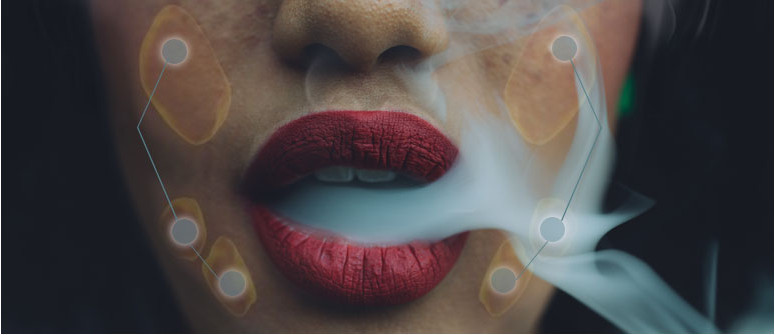What exactly is the cause of dry mouth when smoking weed?

Cottonmouth! Ever wondered why your mouth gets so dry during a weed session? Find out at CannaConnection!
Smoking weed is associated with a few side effects that are closer to being comical than they are to being harmful. One of the most well known reactions is a raging appetite and the munchies that follow. Another is red eyes, a familiar sight when sitting around a table with a tribe of stoner friends. Another harmless side effect caused by smoking cannabis is dry mouth. Many smokers will be familiar with this sensation, often referred to as cottonmouth, after hitting an impressive quantity of joints and bongs.
But what exactly causes this dry mouth? It makes sense to suspect that it's purely just the result of so much smoke passing through the mouth and over the tongue. In fact, it has more to do with the chemical content of cannabis flowers.
THE ENDOCANNABINOID SYSTEM
Dry mouth is far more than just smoke induced dryness. The cause of this sensation has to do with how cannabinoids within weed affect the endocannabinoid system. The endocannabinoid system is made up of a series of receptors that exist on the surface of cells throughout the human body.
Both internal (endocannabinoids) and external (phytocannabinoids) can activate these receptors, causing reactions that can influence appetite, mood, inflammation and other bodily processes.
SALIVA
Before we state exactly how these compounds can lead to a dry mouth, let's look into what causes saliva to be present within the mouth in the first place. Firstly, acinar cells secrete a fluid that is directed through the salivary ducts and towards the oral cavity. During this journey, sodium and chloride are removed from the fluid and potassium and bicarbonate are added to it. This solution is then released into the mouth.
Saliva secretion is controlled by one of the three divisions of the autonomic nervous system known as the parasympathetic nervous system. This branch of the nervous system is responsible for energy conservation and is also referred to as the rest and digest system. Parasympathetic impulses travel from the salivatory nuclei in the brain stem towards the salivary glands, this process stimulates the production and flow of saliva. Salivation can be caused by impulses from the higher brain that involve thoughts of food. Impulses in the mouth and throat that involve taste and feel can also stimulate saliva flow.
SALIVARY GLANDS AND CANNABINOIDS
Various studies have identified that cannabis can cause oral dryness. One such study published within the International Journal of Neuroscience documented oral dryness as a side effect of CBD administration.[1]
Further research published within the journal Experimental Biology and Medicine hypothesised that cannabinoid receptors are located within salivary glands due to cannabis causing dry mouth in that it decreases saliva secretion.[2] The researchers examined the submandibular glands of rats and discovered CB1 and CB2 receptors.
The researchers also found that anandamide (AEA), an endocannabinoid similar in structure to THC, also acted to decrease saliva secretion. This finding indicates that THC may work in a similar manner in the occurrence of dry mouth.
So it appears that when cannabinoids in weed smoke activate the endocannabinoid receptors within saliva glands, secretion decreases. THC may be the culprit here as the study above states that anandamide acts to decrease secretion, and THC is a very similar molecule.
COMBAT THE DRYNESS
Dry mouth isn’t exactly the most pleasant sensation, so here are a few tips in order to combat the desert-like conditions in your oral cavity when they occur.
The first and most obvious line of defence is to keep a glass of water or juice at hand ready to re-hydrate the oral drought.
Ingesting cough drops or hard candies, preferably something that is a healthy alternative, can help to boost saliva secretion due to the sucking action.
Consuming food with a sour flavor may also help to increase saliva secretion due to the activation of taste buds.




